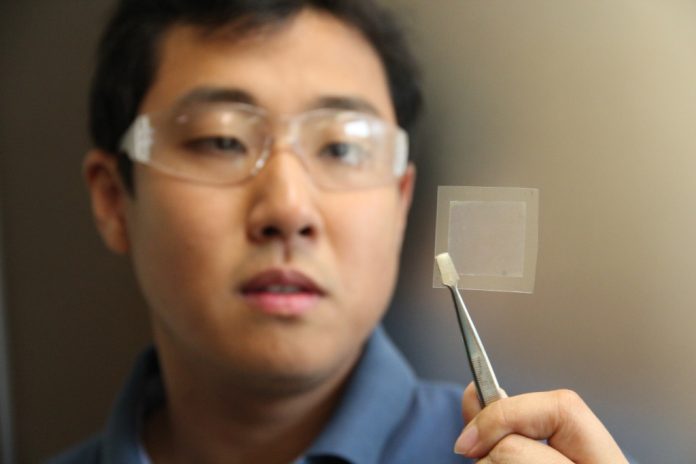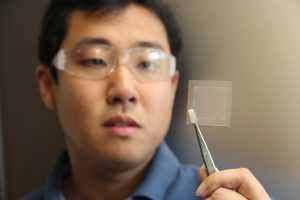
Image credit: www.csiro.au
A new collaboration spearheaded by CSIRO scientists has resulted in the development of a novel technology that could make the production of graphene –the world’s strongest material – commercially viable.

Image credit: www.csiro.au
Graphene – a carbon material that is one atom thick – is used in applications ranging from miniaturised electronics to biomedical devices, with its unique properties making it suited for use in a wide array of industries.
However, up until now, the commercialisation of graphene has been hampered by the high cost of its production, which requires long hours of operation at high temperatures and extensive vacuum processing.
CSIRO scientist Dr Zhao Jun Han said the new technology – called GraphAir – eliminates the need for such a highly-controlled environment by growing graphene film in ambient air with a natural precursor, making its production faster and simpler.
“This ambient-air process for graphene fabrication is fast, simple, safe, potentially scalable, and integration-friendly,” Dr Han said.
“Our unique technology is expected to reduce the cost of graphene production and improve the uptake in new applications.”
CSIRO scientist Dr Dong Han Seo said GraphAir transforms soybean oil – a renewable, natural material – into graphene films in a single step.
He said that when exposed to heat, soybean oil breaks down into a range of carbon building units that are essential for the synthesis of graphene.
“Our GraphAir technology results in good and transformable graphene properties, comparable to graphene made by conventional methods,” Dr Seo added.
He said the team also transformed other types of renewable and even waste oil, such as those leftover from barbecues or cooking, into graphene films.
“We can now recycle waste oils that would have otherwise been discarded and transform them into something useful,” he continued.
CSIRO said it is now looking to partner with industry to find new uses for graphene.
The study, which was published in Nature Communications, also involved researchers from The University of Sydney, University of Technology Sydney and The Queensland University of Technology.




















